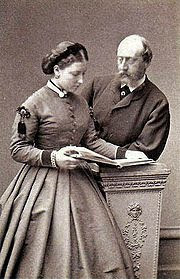A 'cause' is a cop-out or catastrophe,
A decade or two ago, working in an educational establishment, I listened to some young people speaking of going on a march in protest about one thing or another. When asked what it was about they replied, "To speak up for the poor!" A little later, in the same conversation, they spoke of passing by a tramp in the street and how disgusting it was to be approached by some drunk in a bus shelter....Ho hum. A cause is great - it makes you feel good. A person is different.At the recent BAFTA awards, Vanessa Redgrave, whom I admire as an actress and who was at one time a raging Marxist, almost fell to the floor before Prince William. Who can blame her for seeing the light after all these years? A quotation from her in the papers this week sums up the difference between causes and what really matters in the day-to-day:
'My paradox is that though I care a great deal for the masses - the orphans in Vietnam, the starving in India - I seem to care little for the individuals around me.'
Vanessa Redgrave
Causes are often distractions from the nitty-gritty of life around us. We can all feel great when we're championing an underdog but it's very different when we are faced with an individual.
That having been said, there seem to me to be people who love the role of the victim or the sick person and they are more tyrannical than the greatest despots in history. From a position of helplessness, it is possible to have everyone running to your aid, and the welfare society in Britain has pampered to this for far too long. A person appeared on the local news recounting a long list of her illnesses, caused (she said) by living close to a mine. In a previous chapter of this life as a nurse, I met dozens of people who loved being ill and recounting their sad stories of one illness after another. Some people thrive on illness, others on causes...and so the game goes on.
Let's wake up to appreciating that each of us has the power to change our own lives without acting a role. Charities are brilliant if they meet an immediate need and offer a helping hand (since all of us go down sometimes), but if they become causes, they are nothing more than players perpetuating the same game, and the the givers and receivers are simply playing roles, neither is serving any purpose other than continuing the farce.
'My paradox is that though I care a great deal for the masses - the orphans in Vietnam, the starving in India - I seem to care little for the individuals around me.'
Vanessa Redgrave
Causes are often distractions from the nitty-gritty of life around us. We can all feel great when we're championing an underdog but it's very different when we are faced with an individual.
That having been said, there seem to me to be people who love the role of the victim or the sick person and they are more tyrannical than the greatest despots in history. From a position of helplessness, it is possible to have everyone running to your aid, and the welfare society in Britain has pampered to this for far too long. A person appeared on the local news recounting a long list of her illnesses, caused (she said) by living close to a mine. In a previous chapter of this life as a nurse, I met dozens of people who loved being ill and recounting their sad stories of one illness after another. Some people thrive on illness, others on causes...and so the game goes on.
Let's wake up to appreciating that each of us has the power to change our own lives without acting a role. Charities are brilliant if they meet an immediate need and offer a helping hand (since all of us go down sometimes), but if they become causes, they are nothing more than players perpetuating the same game, and the the givers and receivers are simply playing roles, neither is serving any purpose other than continuing the farce.
























